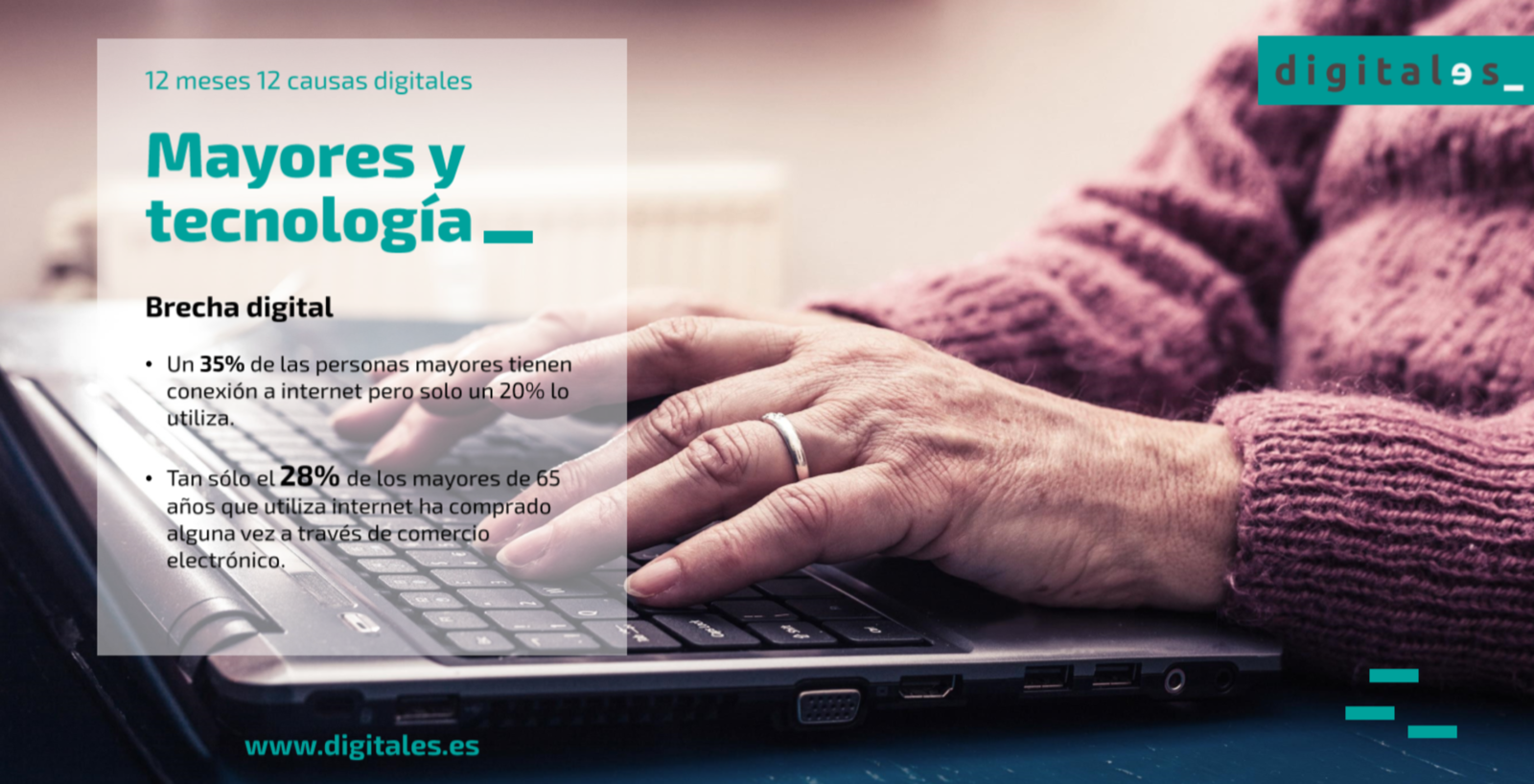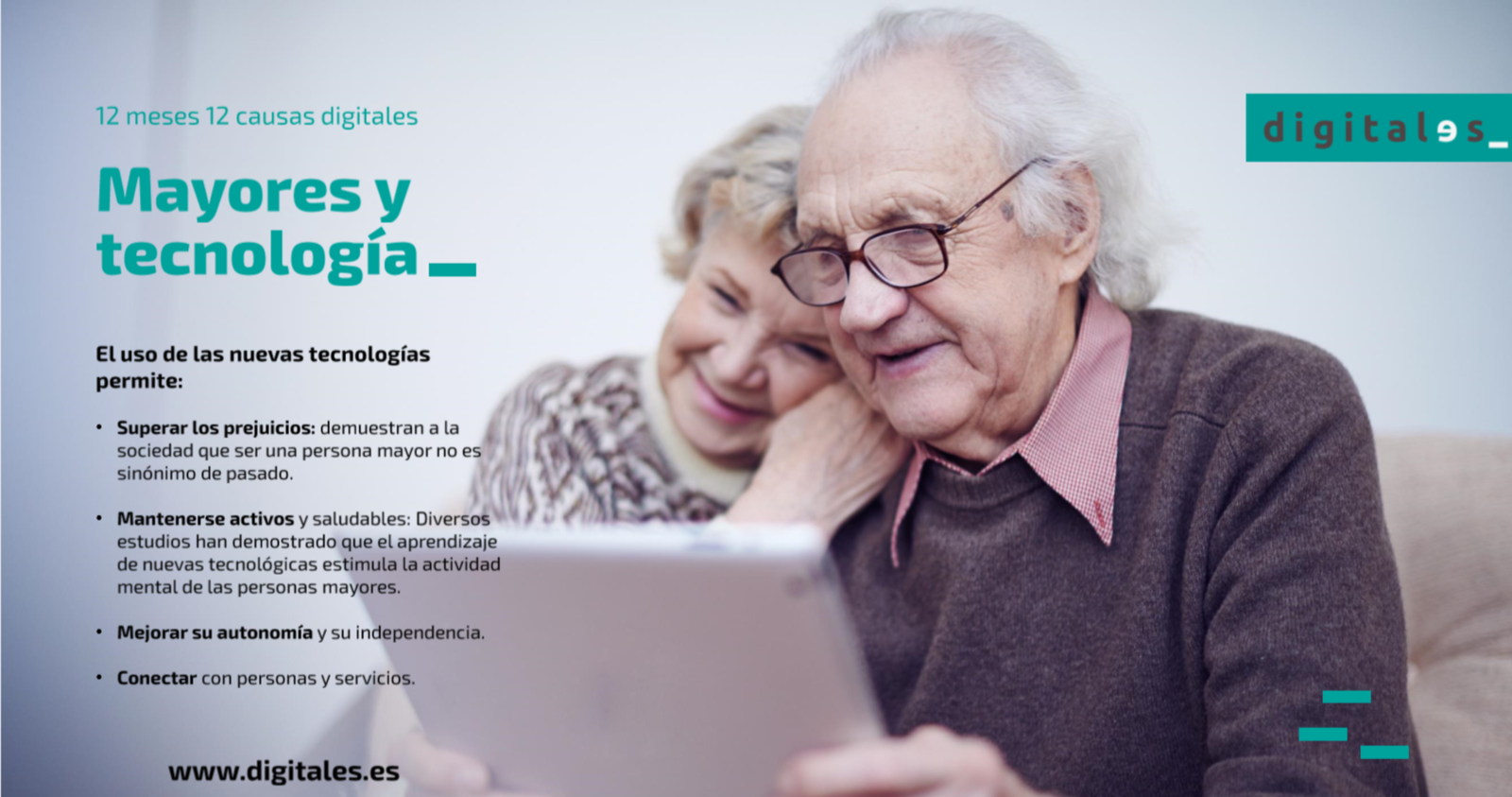23/04/2018
Only 20.6% of those over 65 years of age use the Internet frequently. The majority of ‘atechies’, 82%, claim ‘no need’ as the main reason for not connecting to the Net, but all this is likely to change in the very near future.
Technology and digitalization are here to change our old age. Within seven years, more than 20% of Europeans will be 65 years of age or older. In 2060, one in three citizens will be part of this group. In Spain, life expectancy has risen from 69 years in 1960 to a projected 88 years for women in 2029.
The elderly population is becoming increasingly important, and this has attracted the attention of numerous entrepreneurs who have developed technological initiatives aimed at improving our old age. And beyond the economic interest, there is a moral obligation to society as a whole. Bridging the generation gap should be everyone’s goal.
Our elders are an inexhaustible source of wisdom and technology is basic for them. It can bring them closer to their loved ones, help them keep track of medications, help them pass the time at leisure and even save lives.
Perhaps for this reason, WhatsApp is the favorite tool of those over 65, followed by Facebook. These are networks that allow the exchange of images and videos and communication without the need to use written language, which is more difficult for some people.
But it is not the only one. The massive adoption of smartphones by this age group has made it possible for weareables or user-friendly applications (apps) to become part of the daily lives of the elderly. These are tools that facilitate their communication, but also improve their daily life: remote assistance, monitoring of relevant health parameters, diagnostics or remote check-ups.
Some of them focus on fall prevention, such as Angel 4 or Farseeing; on mitigating the effects of isolation or dementia, such as Mario or Dem@care; or on managing physical and cognitive training exercises that help seniors stay fit, such as Long Lasting Memories and Sociable.
And it’s not all about health improvements. There is also the affective part, which is just as important, if not more so. Story Before Bed is an app that allows you to share experiences with your grandchildren even if they live far away and tell them a bedtime story. It provides a list of stories to choose from, which the user reads while appearing on their grandchildren’s webcam. On the other hand, children can listen to it as many times as they want while at the same time watching their grandparents reading to them on the screen.
Apps, projects and gadgets that are here to change our old age, and which we are sure will be joined by many more in the coming years. But why is it so important for seniors to take advantage of new technologies? The most important benefits are listed below:
- Overcome prejudices: In this way, they show society that old age is not synonymous with the past and prevent them from withdrawing from social life because they feel useless.
- Improve their quality of life: Technology is also useful for the needs they may have.
- They maintain and expand their network of relationships: The use of mobile telephony and tools such as email and instant messaging streamline communication with others.
- Strengthen their independence: Technologies such as the Internet favor their autonomy as independent individuals. They can immediately access information about resources that can support them in their daily lives.
- They stay more active and healthy: Health is not only composed of the balance of the physical factor, but also of the psychic or mental factor. Lack of mental activity explains the decline in learning capacity in old age. Several studies have shown that learning new technologies stimulates the mental activity of the elderly, reducing the incidence of diseases such as Alzheimer’s disease.












